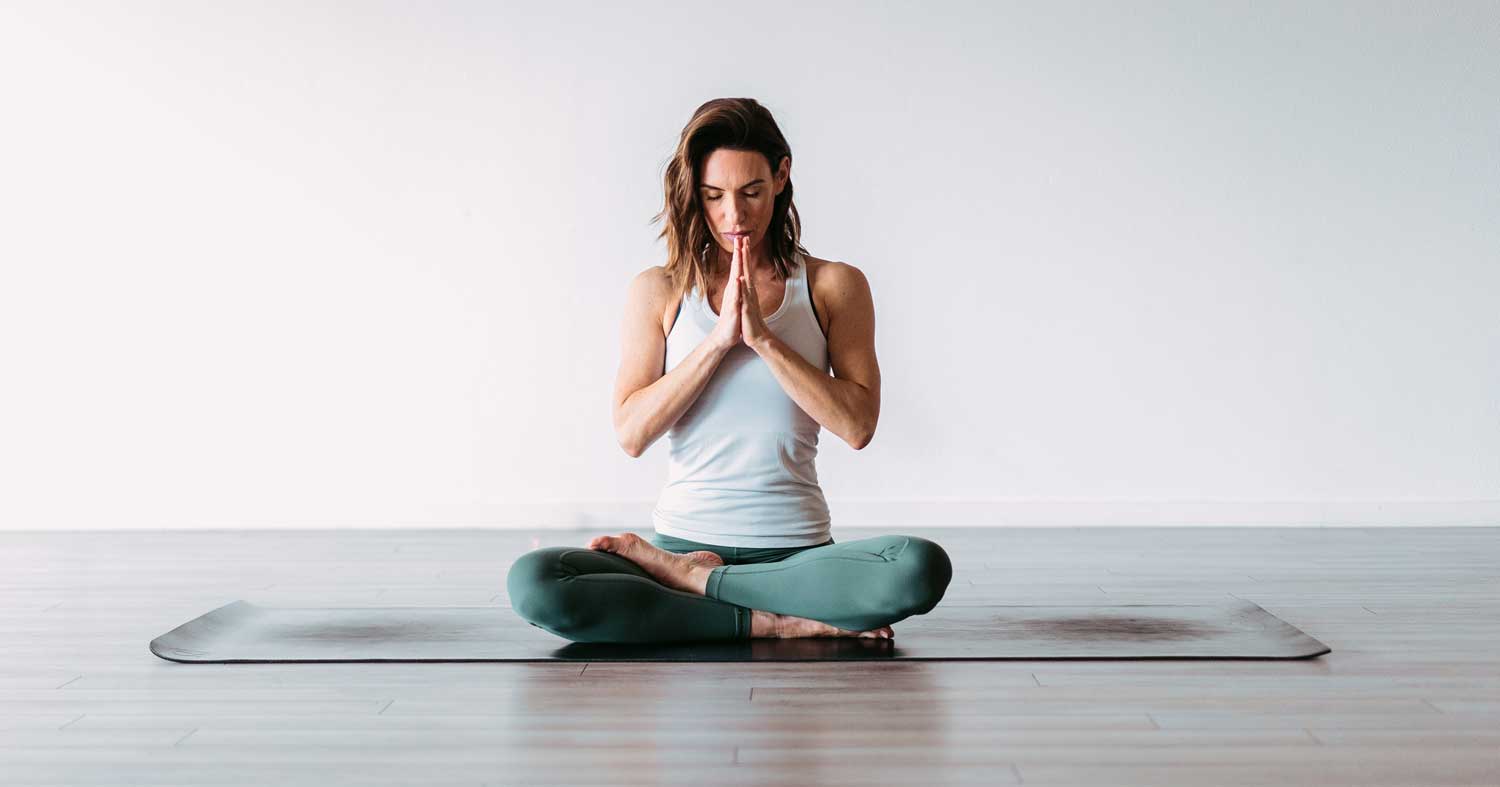Whether we’re overloaded at work, feeling friction with friends or family, or struggling with our own self-image, stress can deflate our happiness and hold us back from our goals.
Here’s the truth: everybody deals with stress.
In fact, a little stress isn’t necessarily a bad thing.
Our bodies naturally respond to challenges or adversity with a ‘stress response’ that includes changes like increased alertness and an elevated heart rate. In urgent or life-threatening situations, these responses can help us get the job done.
Yet too often, our stress responses extend far beyond their point of usefulness.
Ever feel like a big ball of stress when you’re just running errands or on a lunch break? That’s what’s known as chronic stress.
Long-term chronic stress is linked to a laundry list of not-so-helpful health and wellness issues, including:
- Anxiety, depression and irritability (including the Sunday Scaries and Monday Blues)
- Exhaustion, insomnia and difficulty sleeping
- Weight gain and strong cravings for junk food
- An upset stomach and frequent trips to the bathroom
- Procrastination and feeling scattered
- Difficulty making the most of your busy day!
But remember: we always have the power to reduce our stress and anxiety.
Let the good vibes flow with these five activities proven to help you feel calm and peaceful.
Sweat it Out
Exercise is one of the best stress-relievers in existence.

A study published in the journal Preventive Medicine found regular exercisers were “less anxious, depressed and neurotic (and) more extraverted” than non-exercisers. These differences were extremely consistent across gender and age, meaning everyone can experience a boost in positive energy with exercise!
Often times, simply making the decision to exercise plus the first few minutes of physical activity are the hardest part.
This is particularly true when we’re feeling down or anxious. We’ve all had days where our couch feels like it has its own gravitational pull (and a bag of Doritos might be in orbit, too).
The key is to push through the first five minutes!
At that point, you’ll feel an uptick in endorphins, the neurotransmitters that help us feel more upbeat and dull physical feelings of pain.
Any form of exercise can help you relieve stress, from Quidditch to Kabaddi, so be flexible!
Pick up a variety of different activities and always remember that even 5-10 minutes of physical activity is enough to change your outlook for the better.
Laugh it Off
Laughter is like anxiety’s kryptonite.
A study published in the journal Evidence-Based Complementary and Alternative Medicine found a therapeutic laughter program helped cancer patients significantly decrease self-reported levels of anxiety, depression and stress compared to a control group.
While laughing with friends and family may be the most potent form of this age-old medicine, those opportunities aren’t always as abundant as we’d like.
Instagram memes or old sitcoms can give us a giggle, of course, but comedy podcasts are another easy way to brighten up your day.
Thanks to their audio format, podcasts can make otherwise mundane tasks a whole lot more enjoyable!
Take Time to Meditate
How much of your time ‘relaxing’ is actually devoted to scanning social media, religiously checking email, or doom-scrolling the latest depressing news?
We know. We’ve been there.
Meditation can be a perfect antidote to a world jammed with distractions.
Stress and anxiety often leave us feeling irritable and selfish. Research has shown meditation can help us become better listeners and raise our emotional intelligence.
It’s also been found to reduce anxiety, relieve stress, strengthen the immune system and even increase physical toughness.
The core practice of meditation is beautifully simple.
First, sit somewhere comfortable and close your eyes.
Next, bring your attention to your breath.
Now, take a deep, steady inhale.
Follow it with a slow, calm exhale.
That’s it!
Many people believe they ‘can’t meditate’ because a wave of thoughts surface during their practice, but that couldn’t be farther from the truth!
Meditation is about training yourself to acknowledge intrusive thoughts and then release them as you shift your attention back to the breath.
Meditating for just a few minutes each day is a fantastic start.
Connect with Nature
Nature’s sights, sounds, smells and sensations are an incredible remedy for stress.
A study from Cornell University found spending as a little as 10 minutes in a natural setting can help improve your mood and lessen the effects of physical and mental stress.
And you needn’t live next to Yosemite or Yellowstone to experience the healing power of sunshine, foliage and wind. Even a trip to a nearby pocket park or oak-lined street can be enough to alleviate stress.
If you can’t go outside, some studies have found simply listening to natural sounds can trigger positive relaxation, while others have found the presence of a plant on your desk can help soothe anxiety.
Chew Gum
The rest of this list may not come as much of a surprise, but chewing gum?
It’s true — chewing gum is scientifically proven to reduce chronic stress.
In a review published in the Journal of Clinical and Translational Research, the authors write, “the benefits of long-term (gum) chewing on stress reduction suggests that it may be a simple, cost effective method of reducing stress and improving quality of life and well-being.”
People have believed in gum’s therapeutic and medicinal powers for thousands of years.
Hippocrates recommended chewing mastic, a natural gummy-like resin, to cure digestive problems, fend off colds and freshen breath. The Mayans and Aztecs smacked the white sap of the sapodilla tree for similar reasons.
Run Gum Calm brings this ancient ritual into the modern age.
Formulated with calming ingredients like Ashwagandha, GABA and L-Theanine, tranquility is just a few chews away.
Learn more about Run Gum Calm here.
REFERENCES
- https://pubmed.ncbi.nlm.nih.gov/16439008/
- https://www.hindawi.com/journals/ecam/2015/864739/
- https://www.healthline.com/nutrition/12-benefits-of-meditation/enhances-self-awareness
- https://www.sciencedaily.com/releases/2020/02/200225164210
- https://www.ncbi.nlm.nih.gov/pmc/articles/PMC6410656/




